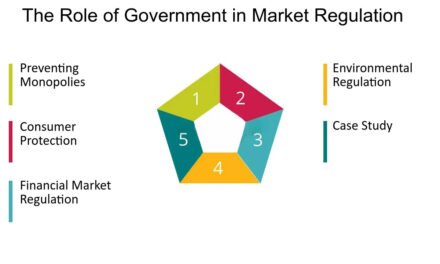The electronics and electrical equipment industry plays a vital and transformative role in the global economy, contributing to economic growth, technological innovation, and the advancement of nearly all sectors. This industry underpins key economic activities and drives advancements across various industries, influencing everything from manufacturing to entertainment, healthcare, and energy production. Here are the key ways in which this industry impacts the global economy:
1. Economic Contribution and GDP
- The electronics and electrical equipment industry is one of the largest and most important sectors worldwide. It accounts for a substantial portion of global GDP. In countries like South Korea, Japan, Germany, and China, the electronics industry is a primary driver of economic growth, contributing significantly to both manufacturing output and exports.
- The global electronics market is projected to exceed $3 trillion, making it a key pillar of the world economy. For example, in China, the electronics industry contributes a significant percentage of the country’s GDP, with electronics exports playing a critical role in its trade balance.
2. Global Trade and Exports
- Trade and exports: The electronics sector is among the most heavily traded industries globally. Semiconductors, consumer electronics, telecommunications equipment, and electrical machinery are major exports for leading economies. This global trade stimulates the economies of manufacturing and export-oriented nations, such as China, South Korea, Japan, and Germany.
- Supply chain dependence: The industry is deeply integrated into global supply chains, with companies relying on suppliers from various parts of the world for raw materials, components, and finished goods. Countries like China, Taiwan, and South Korea are dominant in manufacturing critical components (e.g., semiconductors and displays), while Mexico and Vietnam are key assembly hubs.
3. Job Creation and Employment
- The electronics and electrical equipment industry is a major source of employment, providing millions of jobs worldwide. This includes direct manufacturing jobs, as well as positions in research and development (R&D), design, marketing, logistics, and customer service.
- Additionally, the industry supports indirect employment in sectors such as logistics, packaging, retail, and installation services. In some regions, such as Southeast Asia, the sector provides millions of low- and high-skill jobs, helping to drive economic development and improve living standards.
- The semiconductor industry, for example, has created high-paying engineering and technical jobs in countries like the U.S., Taiwan, and South Korea, while also driving job growth in software and hardware development.
4. Technological Innovation and Productivity
- The electronics and electrical equipment sector is at the forefront of technological innovation, driving advancements that improve productivity across other industries. Innovations in semiconductors, telecommunications, artificial intelligence (AI), automation, robotics, and internet of things (IoT) are vital for the digital transformation of industries.
- Electronics and automation have revolutionized manufacturing, logistics, healthcare, and agriculture. For instance, the widespread adoption of robots and automation systems has increased productivity, reduced production costs, and improved product quality across various industries.
- 5G technology and smart infrastructure are expected to drive innovation in sectors like transportation, healthcare, and energy management, contributing to new economic opportunities.
5. Global Connectivity and Communication
- The electronics and telecommunications sectors play a pivotal role in global connectivity. Smartphones, computers, internet infrastructure, and satellites have connected people worldwide, enabling a globalized economy where businesses, individuals, and governments can communicate and collaborate in real-time.
- The industry underpins essential sectors like finance, education, healthcare, and entertainment. For instance, telecommunications infrastructure enables digital banking, telemedicine, online education, and e-commerce, all of which contribute to the global economy.
- The rapid adoption of broadband internet and mobile technologies in developing economies is creating new markets and improving access to information, fostering economic development, and enabling the digital economy.
6. Energy Transition and Sustainability
- The electronics and electrical equipment industry plays a significant role in the global energy transition by driving the development and adoption of renewable energy technologies. Electrical equipment manufacturers produce solar panels, wind turbines, energy storage systems, and smart grids that help reduce global dependence on fossil fuels.
- Electric vehicles (EVs), powered by advanced batteries and electrical components, are rapidly becoming a cornerstone of the automotive industry, reducing carbon emissions and promoting a greener global economy.
- The industry’s role in energy efficiency through smart appliances, industrial automation, and power management systems helps reduce energy consumption and carbon footprints, aligning with global sustainability goals.
7. Industry and Infrastructure Development
- The industry is critical to the development and modernization of infrastructure. It supplies the electrical equipment needed to power cities, transportation networks, and industrial operations. Electrical grids, smart cities, and renewable energy installations all rely on electrical equipment for efficient operation.
- Smart cities, which rely on interconnected sensors, smart meters, and automation technologies, are creating new opportunities for economic growth by enhancing the efficiency of urban services, transportation, and resource management.
- Electrical equipment is also key to transportation infrastructure, including electric trains, electric buses, and charging infrastructure for electric vehicles, all of which contribute to the decarbonization of transport.
8. Investment in Emerging Markets
- Emerging markets are becoming increasingly important for the electronics and electrical equipment industry. As developing countries continue to industrialize and urbanize, the demand for consumer electronics, energy solutions, telecommunications infrastructure, and smart technologies grows.
- Countries in Asia, Africa, and Latin America are major consumers of smartphones, TVs, appliances, and solar energy solutions, creating significant market opportunities for manufacturers.
- The global push toward improving digital infrastructure and expanding broadband internet access in developing regions is fostering new business opportunities for electronics and electrical equipment companies.
9. Global Challenges and Resilience
- The industry is pivotal in helping economies recover from global challenges such as pandemics, natural disasters, and economic recessions. The COVID-19 pandemic, for example, showcased the critical role of the electronics industry in enabling remote work, education, e-commerce, and telehealth services.
- Resilient supply chains for key components like semiconductors and batteries are vital for maintaining the smooth operation of global economies, especially in the face of disruptions caused by geopolitical tensions or natural disasters.
10. Capital Investment and Innovation Hubs
- The industry is a major recipient of capital investment, particularly in emerging technologies like 5G, AI, quantum computing, and semiconductors. These technologies are expected to shape the future economy and offer long-term growth prospects.
- Innovation hubs and research clusters in regions such as Silicon Valley, Shenzhen, Hsinchu, and Bangalore serve as focal points for cutting-edge developments in electronics, contributing to both regional and global economic prosperity.
Conclusion
The electronics and electrical equipment industry is a foundational pillar of the global economy, enabling innovation, fostering trade, driving technological advancements, and shaping future economic growth. It impacts nearly every sector, from consumer electronics to energy solutions, automotive, manufacturing, and communications, playing a central role in the digital transformation and sustainability of the global economy. The industry’s growth and evolution are inextricably linked to broader economic trends, and it will continue to drive the global economic agenda in the coming years.
Hashtags
#GlobalEconomy #EconomicGrowth #ElectronicsIndustry #TechEconomy #TechInEconomy #GlobalTrade #TradeandExports #TechExports #GlobalTrade #ElectronicsExports #GlobalManufacturing #CrossBorderTrade #InternationalTrade #JobCreationandEmployment #TechJobs #ElectronicsCareers #EmploymentInTech #JobCreation #WorkforceDevelopment #TechLaborForce #GlobalSupplyChain #ElectronicsSupplyChain #TechSupplyChain #SupplyChainManagement #GlobalManufacturingNetwork #SupplyChainResilience #InvestmentandCapitalFlow #TechInvestments #TechCapital #GlobalInvestments #TechFunding #InvestInTech #CapitalFlow #InnovationandTechnologyLeadership #TechInnovation #GlobalInnovation #TechLeadership #InnovationEconomy #TechnologyAdvancement #FutureTech #TechnologicalInfrastructureDevelopment #InfrastructureDevelopment #TechInfrastructure #SmartCities #DigitalInfrastructure #TelecomInfrastructure














